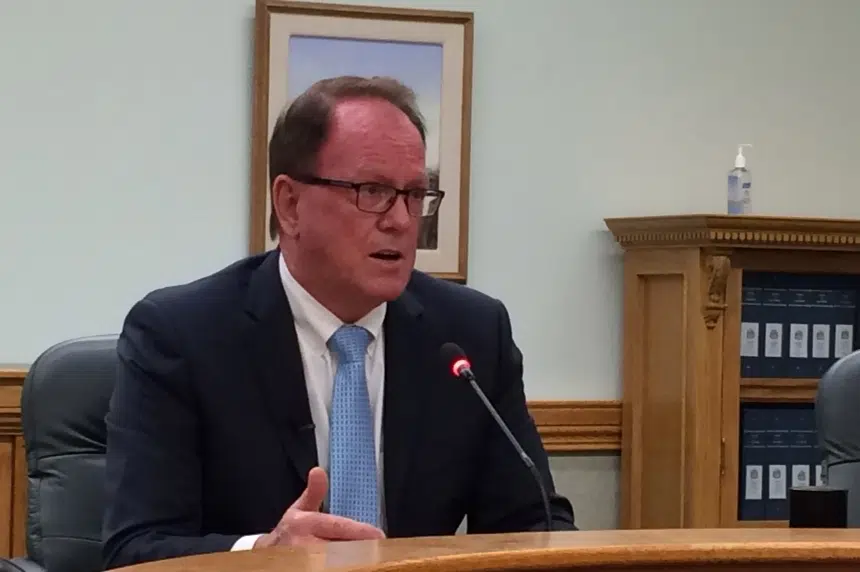The Saskatchewan Advocate for Children and Youth is sharing the details of how a baby died while under the protection of Saskatoon Tribal Council Health and Family Services Inc.
In his final report as advocate, Bob Pringle recommended a series of changes to the agency in light of the death of a three-month-old baby boy, called Aiden to protect his identity.
Aiden was born premature in August 2015 alongside a fraternal twin sister. Both babies were discharged from hospital after a month in the neo-natal unit facing no health issues beyond those typical for a baby born early, according to the report.
The birth of the twins brought the number of children in Aiden’s family up to nine. According to the report, the family had repeated contacts with the tribal council’s family services since the birth of their first child in 2003.
The report documents concerns over the safety of the home, with both parents at times facing issues of substance abuse and domestic violence. At one time, five of the children were taken into care.
Pringle’s report detailed at least four occasions where the agency was called over concerns with how Aiden’s parents were caring for him. The last two of those concerns weren’t addressed, according to Pringle.
“All of this occurred in a context where the agency was aware of other significant challenges placing Aiden and his siblings at risk, yet did not sufficiently intervene,” Pringle wrote.
RCMP got involved in once case after receiving a call that seven children, including Aiden and his sister, had been left home alone. It took an hour for officers to get to the house and the mother was present when they arrived.
The oldest child found in the house was 10. RCMP alerted the agency because of a previous history of responding to calls about the children being left alone. The agency sent a worker to the home who told Aiden’s mom that at least one parent or an appropriate babysitter needed to be with the kids at all times. Aiden’s mom denied leaving the children alone.
The advocate’s report shows Aiden missed six scheduled medical appointments, four of which the agency knew about, but failed to act on.
In several cases, the report states that Saskatoon Tribal Council Health and Family Services Inc. forwarded the care and supervision of the family to support programs in their community. These programs were voluntary, and didn’t didn’t have a mandate to “assess risk and ensure the safety of the children,” according to Pringle.
Aiden died at home on Oct. 25, 2015 of acute bronchopneumonia which arose from haemophilus influenzae, a common bacterial infection in infants. He had not been seen by anyone from the agency nor community support workers for 11 days prior to his death.
Pringle’s report concluded it was impossible to say whether Aiden would be alive if he and his family had received better services, given the unpredictable nature of the infection.
Pringle first raised concerns in June, saying at that time he was trying to investigate the deaths of at least two children who were receiving services from the tribal council’s family services agency.
The Saskatoon Tribal Council went to court this summer in an effort to prevent the provincial government from forcing the agency to hand over its files.
Tribal Council chief says change already underway at agency
STC Chief Felix Thomas said the council’s own investigation yielded many recommendations similar to those contained in Pringle’s report.
“Some of the recommendations that are contained in here, we’re already doing it in terms of increasing the oversight and looking at some structural issues within our agency,” he said.
Thomas stressed that Pringle’s report didn’t lay blame for Aiden’s death on the council’s agency.
While he acknowledged the agency got reports of missed doctor’s appointments and kids being left home alone, he said they never found enough evidence to take the kids away.
“There’s a lot of backstory that’s missing from the report that you need to understand. When you go to investigate something, if it’s not warranted, then you can’t just apprehend (children),” he said.
Thomas said it remains the tribal council’s position that children on-reserve are best cared for by their own.
“The safety of every child is better on First Nations and better in their own homes. There’s statistics that show once you place a child in care, the suicide (risk) goes up by nine times,” he said.
Thomas noted the provincial government’s less-than-stellar track record in caring for children, pointing to 484 deaths of children over the last 20 years who were getting some level of care from the Ministry of Social Services.






